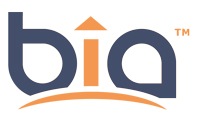
Overview
Most individuals have read about risk and understand the need to identify risks that could impact them, their projects, their customers and the organization. But few understand exactly what a risk management process is. Risk Management is a process for identifying, analyzing and responding to risk factors throughout the life of a project in order to provide a rational basis for decision making in regards to all risks. Proper risk management implies the control of possible future events, and is proactive rather than reactive; so it is embedded into the project planning process. It will reduce not only the likelihood of an event occurring, but also the magnitude of its impact.
The intention of the Risk Management Process is to reduce management by crisis. While there may always be some things that will occur on your project that you may not have anticipated you can manage most of these, through sound risk management rather than gut reaction. Essentially, the Risk Management Process is a quality problem-solving process. It uses quality and assessment tools to determine and prioritize risks for assessment. As well, Risk Management is a continuous process and as such should be an ongoing activity throughout the life of the project. At each stage of the project’s life, there will be new risks to identify, quantify and manage. One can apply Risk Management to all types of projects, whether they are being managed through Waterfall, Agile or a hybrid approach.
Session Focus
This highly engaging workshop will immerse you in the entire process of project risk management. Through real-life case studies you will identify possible internal and external risks, reduce or allocate risks, mitigate risks and build contingencies for risks. This will provide a rational basis for better decision making in regards to all project risks.
Who Should Attend?
- Directors of Project Management Offices
- Senior Project Managers
- Programme Managers
- Project Auditors
- Engineers
- Management who are accountable for the successful execution of projects
Key Outcomes
- Understand the terms and definitions commonly used in risk management.
- Identify how risk will impact each stage and gate within the project’s life cycle.
- Define and understand the Risk Management Process.
- Identify risk opportunities for the project.
- Clarify the difference between project risk management, issue management and crisis management.
- Research and identify risks that might impact all aspects of the project.
- Recognize the positive and negative sides of risk.
- Identify potential missed opportunities of not taking a risk.
- Prioritize all identified risks to determine high, medium and low risks.
- Complete a cause and effect analysis on high priority risks.
- Conduct a root cause analysis on high priority risks.
- Identify strategies to better manage risks.
- Create mitigation plans to reduce risk likelihood.
- Create contingency plans to manage risks.
- Finalize the risk mitigation plans to reduce risk likelihood.
- Create contingency plans to manage risks.
- Undertake project risk management on an on-going basis.
- Identify how risk will impact each stage and gate within the project.
Course Duration
1 Day

